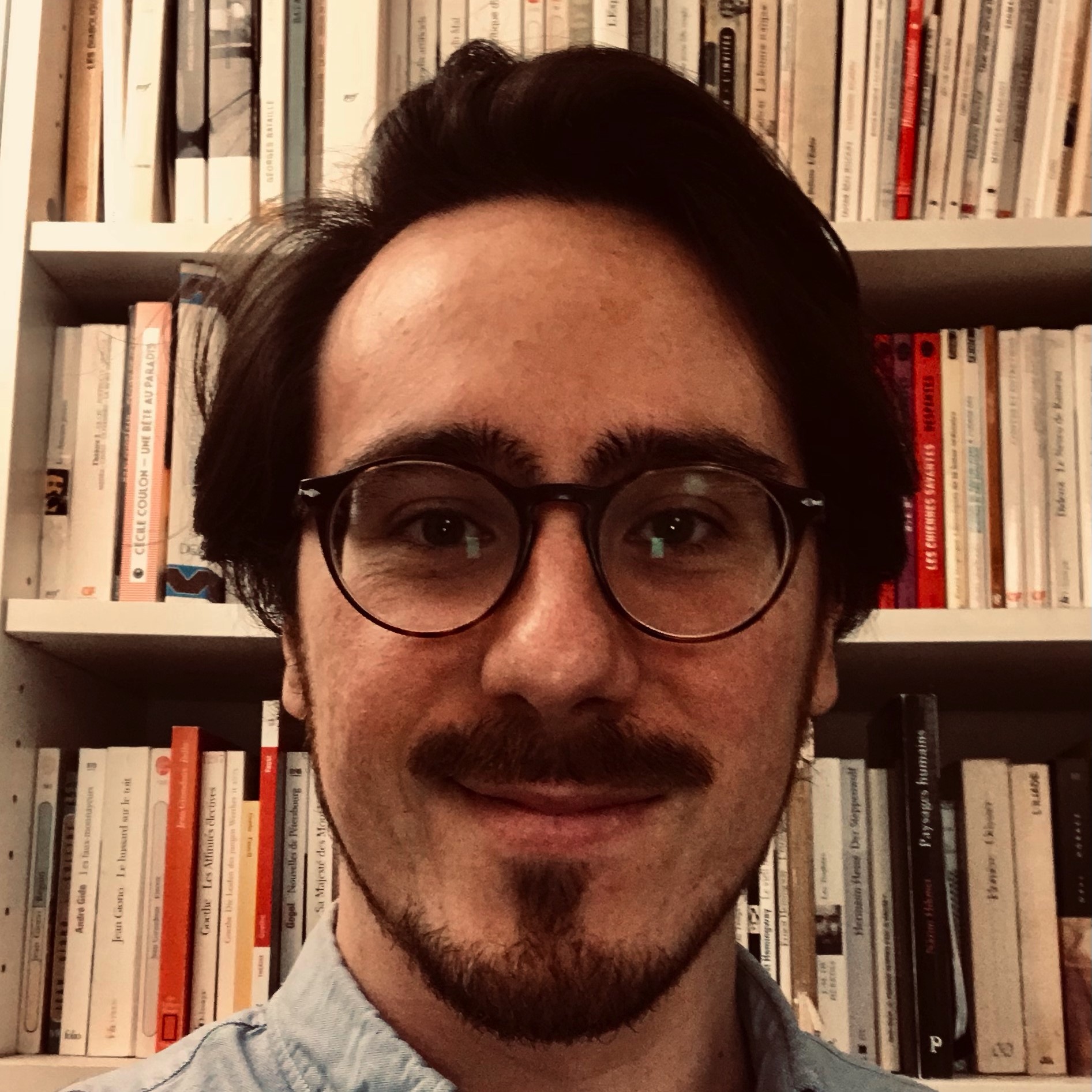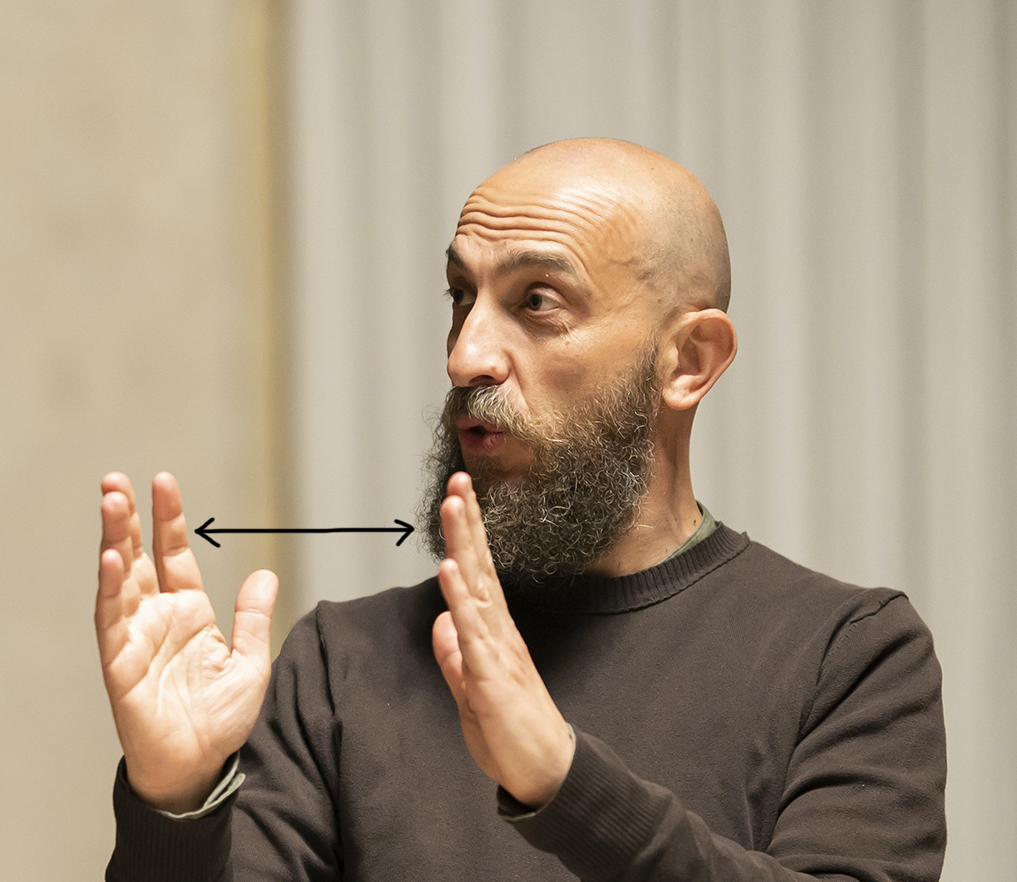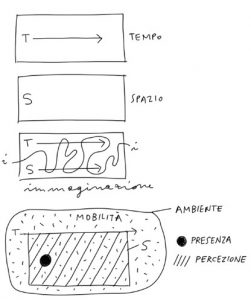
Lucia Quaquarelli, co-directs the Centre de Recherches Pluridisciplinaires Multilingues, Université Paris Nanterre
About the Author
Lucia Quaquarelli co-directs the Centre de Recherches Pluridisciplinaires Multilingues (CRPM Université paris Nanterre. Her research focuses on the forms of contemporary narratives, the circulation of imaginaries and the cultural, political and social dimensions of translation.

Adrien Frenay, Phd Student in French Literature and a tenured teacher, Université Paris Nanterre
About the Author
Adrien Frenay is a Phd Student in French Literature and a tenured teacher at the Université Paris Nanterre. He researches in the area of mobilities in the 19th and 20th c. French novel.

Marcello Signorile, designer, educator and facilitator, art director and co-founder, muschi&licheni design network
About the Author
Marcello Signorile is a designer, educator and facilitator, art director and co-founder of muschi&licheni design network.

CRPM Université Paris Nanterre,
About the Author
The Centre de Recherches Pluridisciplinaires Multilingues (Université Paris Nanterre) focuses on the study of the globalised contemporary world from a variety of approaches coming from the social sciences and the humanities – cultural, geopolitical, economic, sociological, linguistic, literary and media. It brings together 22 full-time researchers and about 50 associate researchers and artistes coming from a wide range of international research and artistic institutions.
The Centre de Recherches Pluridisciplinaires Multilingues (Université Paris Nanterre) focuses on the study of the globalised contemporary world from a variety of approaches – cultural, geopolitical, legal, economic, sociological, linguistic, literary and media. It brings together 22 full-time researchers and about 50 associate researchers and artistes coming from a wide range of international research and artistic institutions.
The CRPM both enacts and questions “pluridiscipline”, considered less as a matter of making disciplines interact and cooperate together and more as a practice that aims to reveal and take into account the configuring skill of disciplines and, even more so, an attempt to force disciplinary boundaries through the recognition of the centrality of the Humanities and Arts in the comprehension and critical analysis of contemporaneity.
Humanities are the condition for the existence of a systemic scientific approach whose purpose is to rethink the relationship between human beings and the world. Humanities are the only possible platform that makes possible the encounter and connection of different disciplines and allows their transformation and renewal as they provide a complex analysis of contemporaneity which links past and present in a diachronic perspective, phenomena and their perceptions and representations in a dialogical and productive dimension, events and social policies in a critical way.
Remarkably close to the social and political issues raised by the recent health emergency, the CRPM works, since 2017, on an international project called “Espace, déplacement, mobilité” (https://crpm.parisnanterre.fr/axes-de-recherches/crpm-espace-deplacement-mobilite-905781.kjsp?RH=crpm_rech), which aims to question the interaction between human and space from the notion of mobility, giving particular centrality to the role that literature and arts have in writing/reading and rewriting the world.
The project is carried out with the collaboration of: Dipartimento di Sociologia e Ricerca Sociale, Università Milano Bicocca; Centre for Advances Studies in Mobility & Humanities, Università di Padova; Dipartimento di Filologia Classica e Italianistica, Università di Bologna; Global Mobilities Network; Institut de Sciences Politiques et Sociales, Paris; Archivio Scritture Migranti, Universtà Ca’ Foscari Venezia.
You will find below a short description of the project and some lines of our research that are also possible applications of Humanitas in the contemporary urgency of understanding and reorienting our societies.
Theoretical premises:
If it has been possible to think of localization as a privileged support for the very idea of culture and society, we are undoubtedly witnessing today an inversion that makes displacement, mobility and migration practices invested of cultural, societal and political meanings. Even places, usually observed as still and static entities, must then be seen as mobile supports for a multiplicity of trajectories and discourses with a configuring and modelling intensity.
Arts and Literary discourses extend, invest and configure space in a dynamic relationship of continuity that underpins the human practice of places. They establish a performative relationship with the territory, becoming both an experience and a trace, influencing our way to see and practice the world. They are a way to negotiate between aesthetic experiences of the world and ideological commitments, inner thoughts and feelings and critical grasps of the contemporaneity, especially when it comes to identity, places and mobility.
In order for arts and literary discourses to contribute to the “humanistic-cultural turn” of Space, Mobility and Urban Studies it is necessary to agree on the idea that imagination is not the opposite of reality. Imagination is a “processus de realisation” (Didi-Huberman 2017): a process of “making real” through images and imaginary. Imagination both figures (depicts) and configures (shapes) our world, connecting time and space, individual and public, event and perception, idea and experience.
Thus, arts and literary discourses constitute an « anthropological field » for understanding how people experience the places they inhabit and within which they move, both in the perspective of providing a critical reading of it and in the perspective of allowing its reorganization, planning and inclusion policies.

Research lines:
- Territory appropriation and resignification practices
How can we read institutional urban and not-urban “inclusion” and “bottom-up participation” policies within the literary and arts claim of right of passage, serendipity, transgression, walkability and slow mobility? Spatial justice within “poetic justice”?
- From the right to the city to the right to mobility
Is it possible to rethink the interaction between citizen and city, updating the notion of “right to the city” (Lefebvre 1975), in terms of “right to mobility”? If the relationship between human and urban cannot be exhausted in guaranteeing access to the services offered by the city, and must be thought of in terms of relationship, anchorage, movement and communication (Lussault 2020), couldn’t the concrete utopia of Lefebvre be updated in terms of the right to mobility?
- Migration(s) and new community belonging: uses, reconfigurations and (re)appropriation of the city
Can we think of the city as a polytopic urban network able to create new community belongings? How does the migrant presence transform, re-functionalize and redefine the urban space? Which are the real, symbolic or metaphorical spaces within which the processes of urban reconfiguration take place?
- Mobility, immobility, fragmentation
Literary and arts discourses are able to address fragmentation (Ingold 2007) of our growingly precarious times, places and space. They can be studied as specific ways of weaving the variegated fabric of life experience where thoughts, feelings and bodily sensations, memory and identities are expressed by, given meaning to and contained by entanglements of places, lines, paths and transport.
- Mobility, means of transport as techniques and media
Mobility and means of transport can be used as media to stage visions of the world still unknown. Literary discourses and arts can thus show how writers and artists through the use of transport techniques, express the state and transformation of the relationship between people and places. In this extent, means of transport can be considered as optical devices creating concurrent, if not competing visions (and versions) of the world, past, present and future.
- Mobility, technology, culture and knowledge
In a broader perspective, literary discourses and arts can help us understand how mobility affects and gives meaning to cultural products, knowledge, social practices, and imaginaries. To what extent mobility shapes our material, conceptual and discursive world? As a technology (discourses on techniques), what kind of knowledge is mobility able to build? What does mobility enable us to think and what has it enabled us to think so far? All the more so in a context of forced immobility?
Lucia Quaquarelli, Adrien Frenay, Marcello Signorile
CRPM, Centre de Recherches Pluridisciplinaires Multilingues, Université Paris Nanterre

